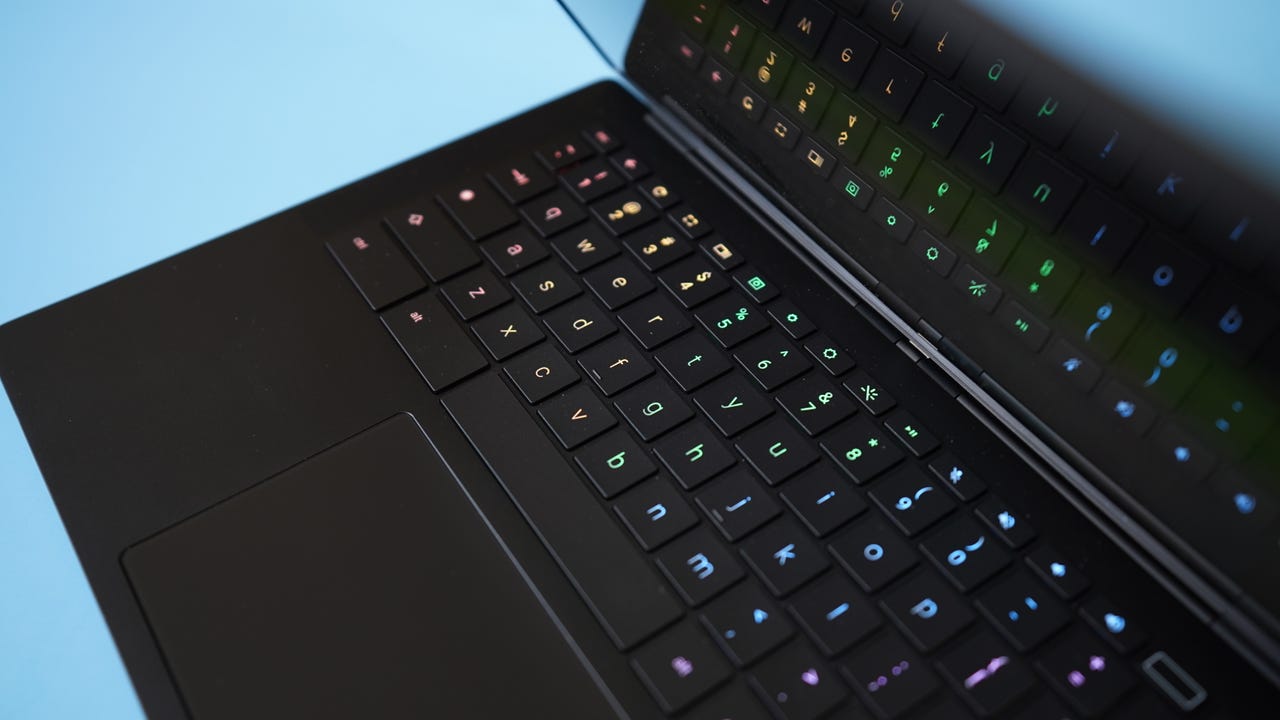'ZDNET Recommends': What exactly does it mean?
ZDNET's recommendations are based on many hours of testing, research, and comparison shopping. We gather data from the best available sources, including vendor and retailer listings as well as other relevant and independent reviews sites. And we pore over customer reviews to find out what matters to real people who already own and use the products and services we’re assessing.
When you click through from our site to a retailer and buy a product or service, we may earn affiliate commissions. This helps support our work, but does not affect what we cover or how, and it does not affect the price you pay. Neither ZDNET nor the author are compensated for these independent reviews. Indeed, we follow strict guidelines that ensure our editorial content is never influenced by advertisers.
ZDNET's editorial team writes on behalf of you, our reader. Our goal is to deliver the most accurate information and the most knowledgeable advice possible in order to help you make smarter buying decisions on tech gear and a wide array of products and services. Our editors thoroughly review and fact-check every article to ensure that our content meets the highest standards. If we have made an error or published misleading information, we will correct or clarify the article. If you see inaccuracies in our content, please report the mistake via this form.
Now you can run any Windows app on your Chromebook, thanks to this partnership

Over the years, ChromeOS has become quite popular. After all, most people these days really don't need anything more than a web browser to access their work. Software-as-a-service (SaaS) applications such as Microsoft 365, Google Workplace, Slack, and Zoom, for example, are what most workers need.
Still, there's always that one Windows application companies need, which keeps businesses using Windows. But now, the software virtualization company Cameyo, in partnership with Google, has unveiled its newest Virtual App Delivery (VAD), which enables you to seamlessly run your Windows applications alongside Chrome applications on your Chromebooks.
Also: The best laptop deals in August 2023: MacBook, Chromebook, 2-in-1 sales
This is not a virtual desktop play. As Naveen Viswanatha, Google's Head of Product for ChromeOS Solutions, said, "While many organizations previously relied on virtual desktop solutions like VDI and DaaS to deliver their legacy software to end users, many are struggling with the significant overhead caused by delivering full virtual desktops In today's cloud-first world, users just need simple & secure access to their apps in a seamless way that optimizes their productivity. That's where ChromeOS Virtual App Delivery with Cameyo comes in."
With this new built-in ChromeOS service, you can run what Google calls "legacy apps" on any Chromebook. There, they will appear as Progressive Web Apps (PWA), Microsoft's own cloud-based approach for applications.
In recent years, Microsoft has focused on moving Windows to the cloud. That works if you have a fast internet connection, but it's expensive. The latest version of its Cloud PC, Windows 365 Frontline. which is meant for retail, healthcare, hospitality, and other vertical industry employees, starts at $42 for three users per month. This entry-level configuration has two virtual CPUs, 4GB of RAM, and 64GB of storage. For a frontline service worker, that should be more than enough.
Also: How to organize your Google Drive: 5 tips and tricks to know
Instead of requiring users to run a full remote Windows version, Cameyo streamlines the app delivery process. You only run the Windows application you need remotely. These Windows programs also incorporate file handling, clipboard support, and the ChromeOS file system. With VAD, your virtualized Windows applications merge with the ChromeOS environment.
This means, according to the Enterprise Strategy Group (ESG), VAD on ChromeOS can reduce your Total Cost of Ownership (TCO) by 54% compared to virtual desktops.
That 54% reduction in TCO takes into consideration the following, according to the press release:
82% Reduction in Hardware Costs – ESG confirmed that combining savings related to ChromeOS IT costs and Cameyo infrastructure costs can save businesses 82% in total hardware costs.
75% Reduction in Licensing Costs – ChromeOS Virtual App Delivery with Cameyo provides access to applications on a per-named-user basis, helping companies reduce their licensing and application costs by enabling each user to access their apps on any device, without needing a license for each device.
53% Reduction in Operational Costs – ESG research found that ChromeOS and Cameyo deliver a 53% reduction in operational costs by eliminating many of the tasks typically required to operate a virtual desktop, such as configuring applications for each desktop, provisioning, patching, and updating those devices.
Besides the cost savings, ChromeOS devices are more secure than Windows. You're safer running Windows apps remotely on ChromeOS than on a Windows PC. After all, ChromeOS has yet to fall victim to a ransomware attack. Windows, on the other hand, falls prey to ransomware every day. In addition, ChromeOS and Cameyo have implemented a Zero-Trust model for greater security.
Also: Ransomware attacks broke records in July, mainly driven by this one group
For years, Cameyo has offered this service as a ChromeOS add-on. Now, it's being integrated directly into ChromeOS under the name ChromeOS Virtual App Delivery. You won't have to add this service. It will come in a ChromeOS update arriving on your Chromebook soon.
If you want to make the most of your Chromebooks and your Windows PC apps, you should check it out.
As Shannon Kalvar, IDC's Research Director of Virtual Client Computing, said, "Secure, cloud-first operating systems and Virtual App Delivery (VAD) have become key enablers of an enterprise's digital operations and talent strategies. Combining Cameyo's VAD solution with ChromeOS devices results in a win-win scenario for both end users and IT. End users get seamless and productive work experiences from anywhere, and IT gets a more secure, flexible, and cost-effective solution that requires fewer IT resources to deploy and manage."
